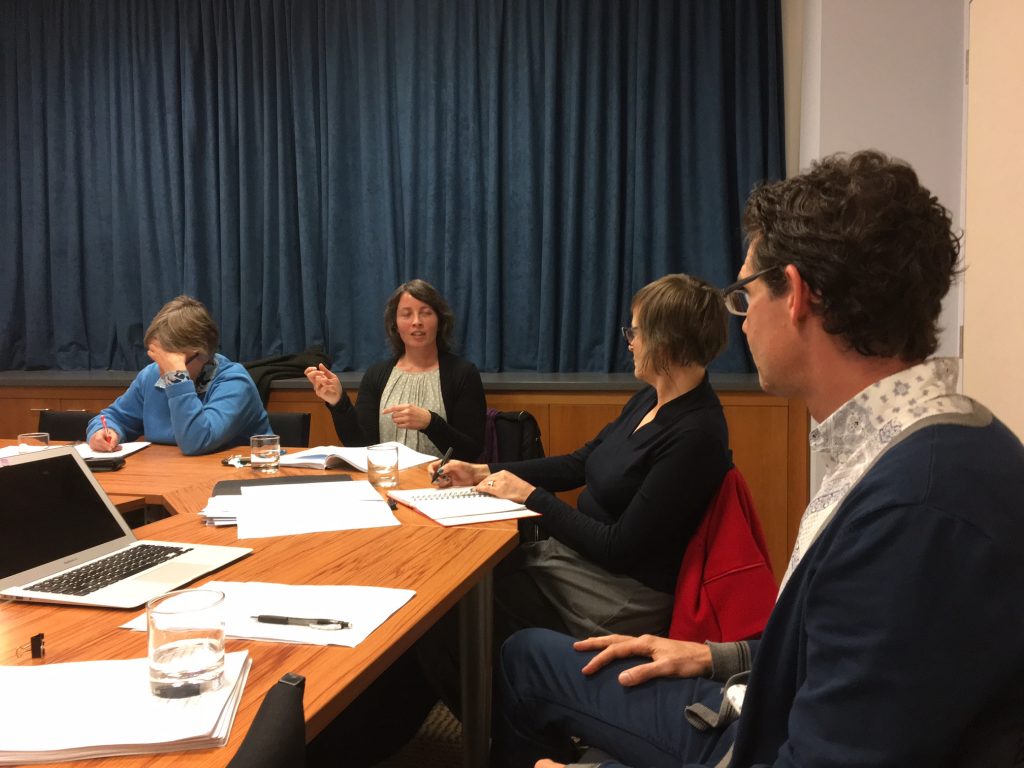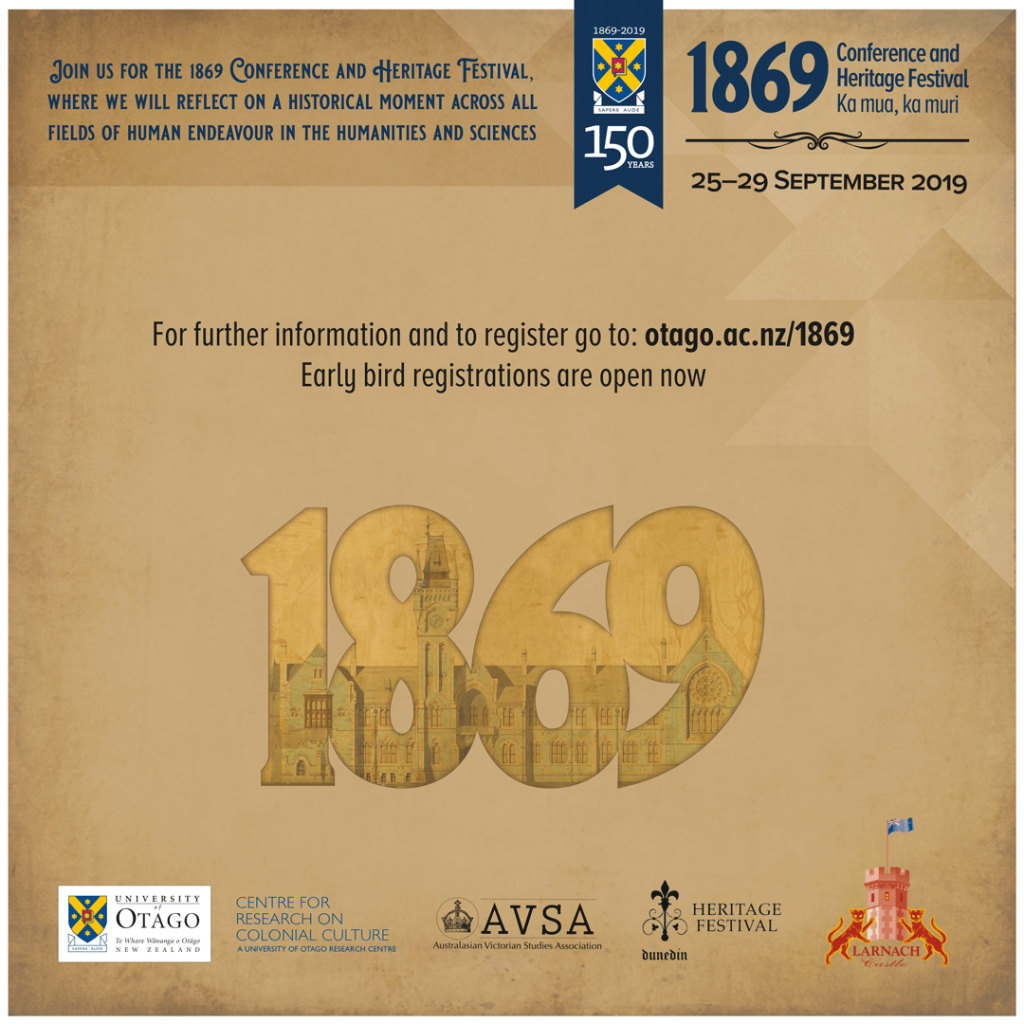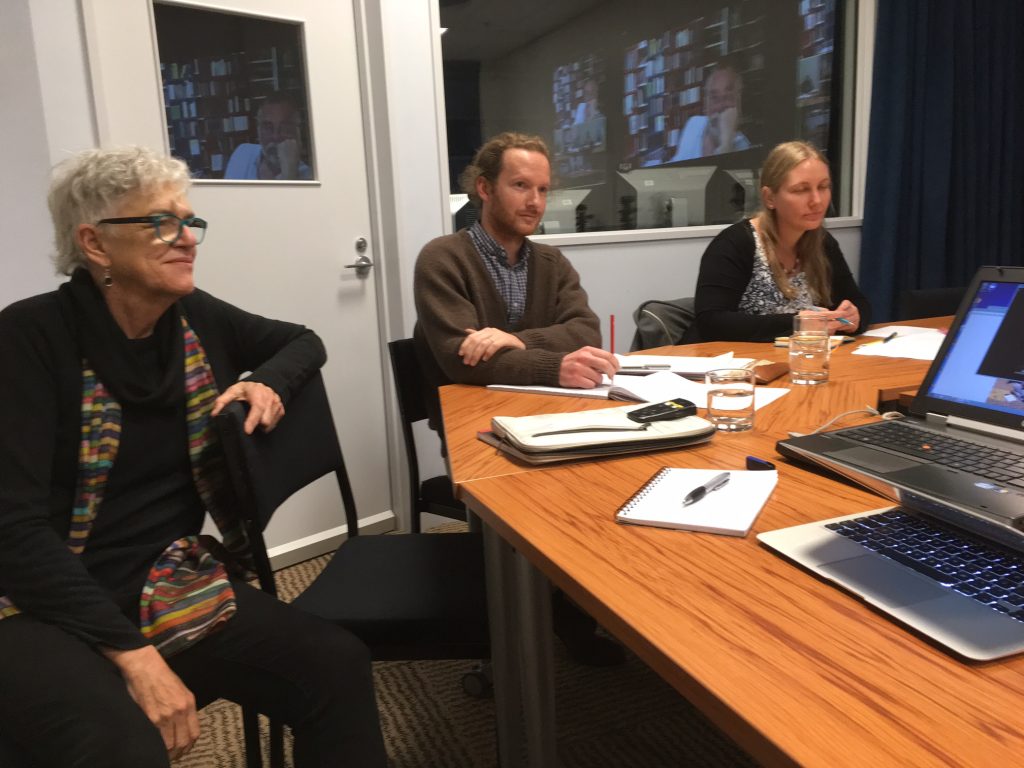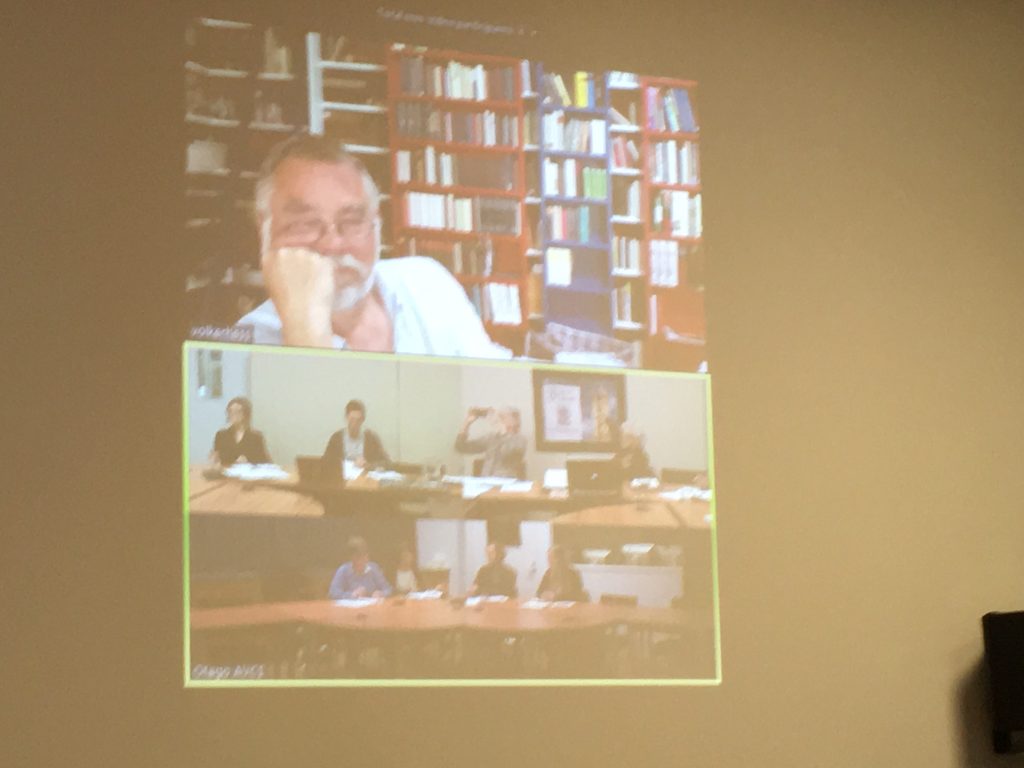1869 Conference and Colonial Knowledges CFP
A draft programme for the 1869 conference is available, and registration is open. Please check out the conference website and make sure you register for what looks like a fantastic programme, including some amazing keynotes and invited speakers.
Also of interest is a CFP for a February 2020 event at the University of Manchester on Colonial Knowledges: Environment and Logistics in the Creation of Knowledge in British Colonies from 1750 to 1950. Check out the Call for Papers here. Abstracts are due 23 August.
Held in Trust: Curiosity in Things Conference
Call for Papers
HELD IN TRUST: CURIOSITY IN THINGS
A conference co-sponsored by Otago Museum and the Centre for Research on Colonial Culture, University of Otago
24-25 January 2019
Barclay Theatre, Otago Museum
The history of museums has largely been framed under the rubric of colonial domination or building cathedrals of science. But what are the bigger stories that motivated the creation of the collections?
Objects have the capacity to tell stories of lives and communities that are interconnected over space and time. Objects are the tangible material world of scientific endeavour and during the nineteenth century trade in them boomed, yet accounts of the political context surrounding their discovery and translocation are overlooked.
Looking beyond object biographies, tales of eccentric collectors, acquisition and institutional histories, this conference foregrounds the global context of commercial trade and exchange networks that contributed to the patterns of knowledge discovery and creation. What then are the bigger stories of culture, economics and politics that formed our colonial museums?
We invite contributions that address the broad theme of knowledge production in the colonial museum.
Keynote speakers:
- Professor Tony Ballantyne FRSNZ Co-director Centre for Research on Colonial Culture and Pro-Vice Chancellor Humanities, University of Otago.
- Professor Simon Ville, Senior Professor of Economic and Business History, School of Humanities and Social Inquiry in the Faculty of Law, Humanities and Arts, University of Woollongong.
- Associate Professor Conal McCarthy, Director of the Museum and Heritage Studies programme at Victoria University of Wellington.
Please send your abstract (max. 250 words) and one-page CV to crocc@otago.ac.nz by September 15th, 2018.
For further information, please contact Rosi Crane (Rosi.Crane@otagomuseum.nz).
Archival Files and Knowledge Production Workshop
The Centre hosted a very successful workshop on May 30 & 31, organised by Barbara Brookes, addressing the creation of archival files, the way individual lives get written into such files, the serendipity (or otherwise) of the survival of such paperwork, how it gets ordered, and how such files might make it possible to create claims on the state. Participants also considered the origins of files in book-keeping work and their ongoing life in the digital realm and asked how different forms of accessibility might alter our engagement with files and what might be lost when the original ordering becomes subservient to digital imperatives, such as the great demand by genealogists.
The writing of history is shaped by its sources. Workshop participants spent two days thinking about how those sources shape narratives within institutions, at the national level, and for the individual. Jane McCabe, from the Department of History and Art History at Otago, linked an institution, a number of countries and personal narratives in her paper which is based on an archive that continues to shape lives in the present. Rosi Crane, an Honorary Research Fellow at Otago Museum and a graduate of the Department of History and Art History at Otago, who has been working on the project for Barbara, attended and presented her thoughts near the end of the workshop.

Rosi Crane takes notes as Jane McCabe discusses her paper while Kate Hunter and James Moran listen attentively.
All workshop participants considered this on-going relationship with archives, how historians use them to create coherent stories and how paper trails both serve to highlight some kinds of knowledge and elide others. The Centre was delighted to welcome to the Otago campus James Dunk from the University of Sydney, James Moran from the University of Prince Edward Island, Sally Swartz from the University of Capetown, Kate Hunter and Rebecca Lenihan (with Charlotte Macdonald there in spirit) from Victoria University of Wellington. and Volker Hess, from the Charité – Universitätsmedizin Berlin, who joined the workshop by zoom for three hours of intense discussion of pre-circulated papers.
Congratulations to Barbara Brookes on putting together a fantastic programme of speakers. We look forward to seeing the publication of these papers in a special journal issue in the near future.




